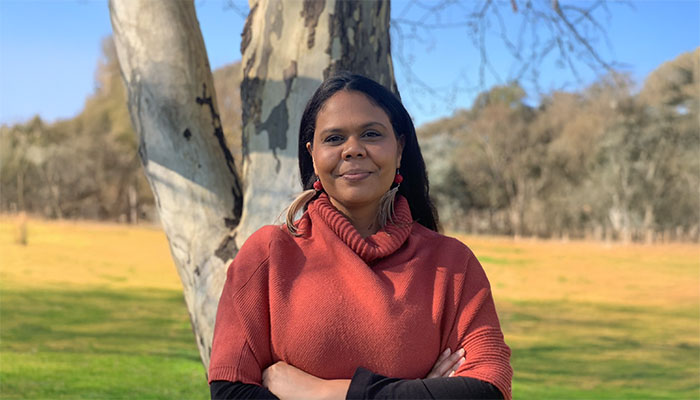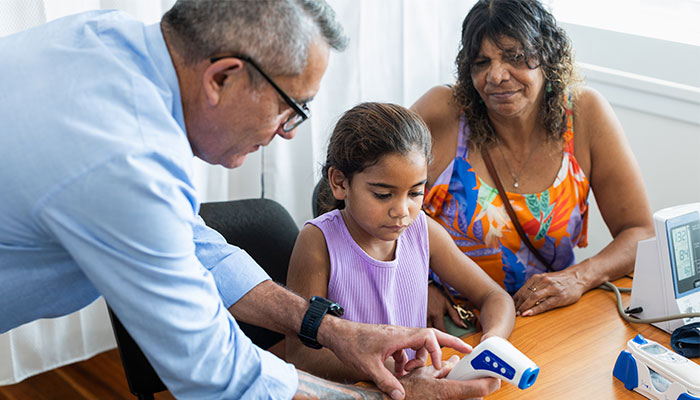Undertaken by researchers from Macquarie University Hearing’s HEAR Centre and published in the Medical Journal of Australia, the umbrella review looks at qualitative studies involving Indigenous peoples from Australia, New Zealand, the United States and Canada.
Indigenous peoples worldwide have a broad, culturally based conceptualisation of health that goes beyond medical care alone and may conflict with narrower biomedical definitions, says Indigenous Australian researcher Lynda-June Coe, lead author of the review.
“Culture is at the heart of a more holistic paradigm of how we view health and wellbeing,” says Ms Coe, a Research Fellow in the HEAR Centre and a PhD candidate in the Department of Critical Indigenous Studies at Macquarie University.
“From an Indigenous perspective, the cultural determinants of health include Country, land, the environment, family and community, all of which are interconnected and mutually reinforce an individual’s cultural identity and belonging.”

Safe spaces: Lead author Lynda-June Coe says culturally safe health services bring about positive outcomes for Indigenous people.
The review also emphasises that measuring effectiveness of health services using Western evaluation methods — including cost–benefit analyses and arbitrary key performance indicators — ignores the ways Indigenous communities themselves perceive the value and benefits.
“Whilst we’re increasingly recognising the cultural determinants of health, we’re still in the early stages of understanding how that can be implemented against the background of colonial understandings of health and health service delivery,” says Ms Coe.
Co-designed care
Indigenous sovereignty, self-determination and cultural safety are key drivers of perceived value in health care services for Indigenous people and communities.
“It’s a consistent theme around the world: Indigenous-led health services and programs co-designed with Indigenous communities are more likely to lead to positive health outcomes for Indigenous people,” says Ms Coe.
“Decolonised health systems embed culture, cultural safety and cultural responsiveness into health service delivery.”

Culturally safe services, Ms Coe explains, are those that enable Indigenous people to make their own decisions about their health, to question the health service provider and to feel comfortable about making a complaint if required.
- Humans of Macquarie: artist Dylan Barnes
- Is therapy or medication better for anxiety recovery in over 60s?
“For our health sector institutions, delivering culturally safe health care means shifting the organisation’s values and cultures away from those that solely reflect the social and political values of mainstream and privileged groups, and instead recognising and acknowledging the needs and perspectives of the Indigenous person or community.”
Lynda-June Coe is a Research Fellow in the Hearing, Education, Application, Research (HEAR) Centre, a WHO Collaborating Centre, and a PhD candidate in the Centre of Critical Indigenous Studies at Macquarie University.



